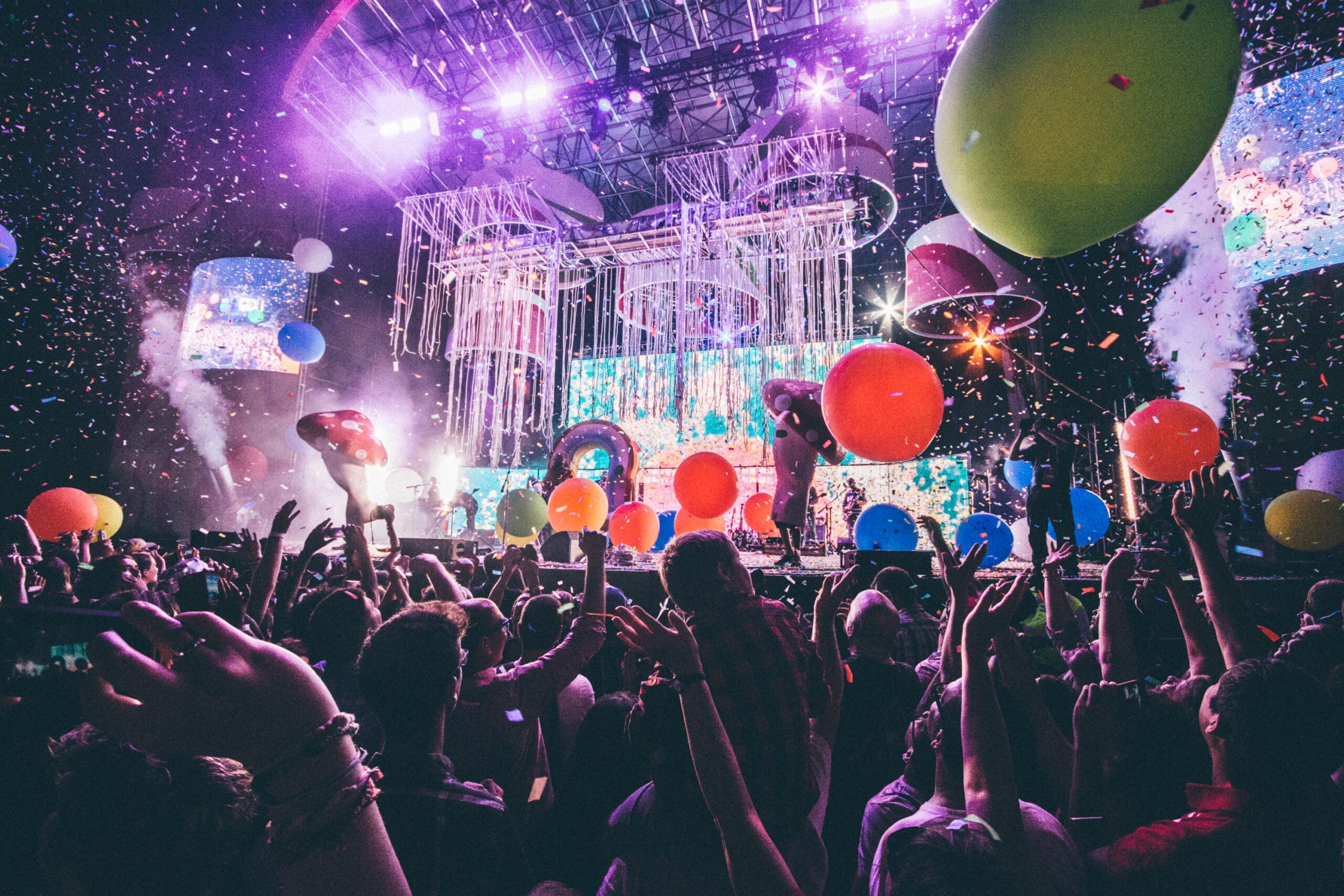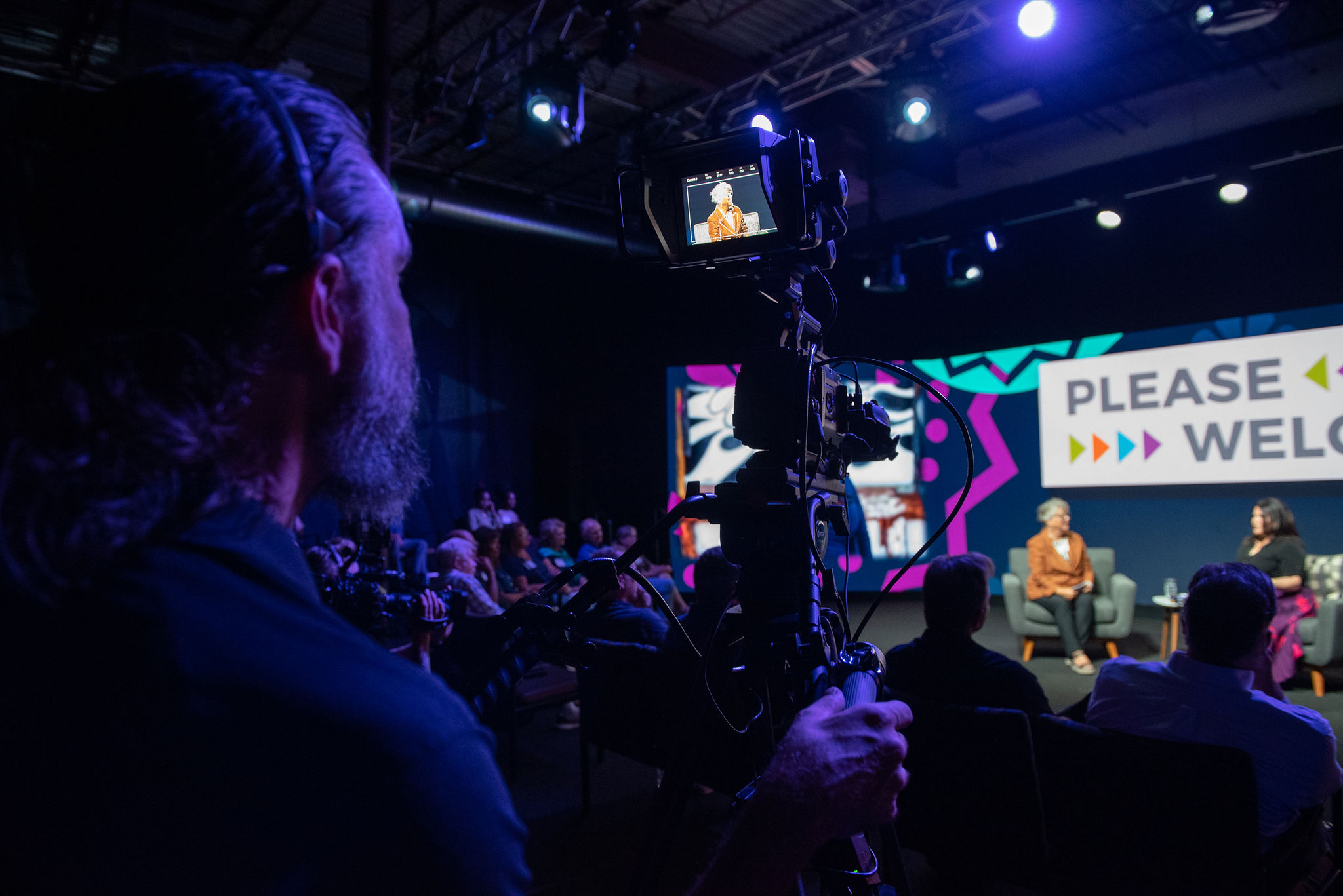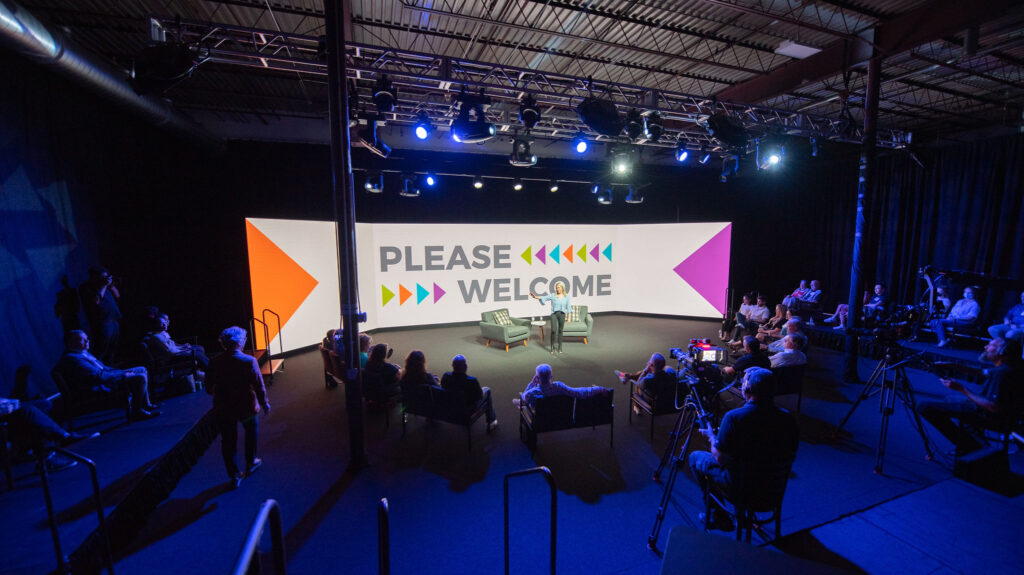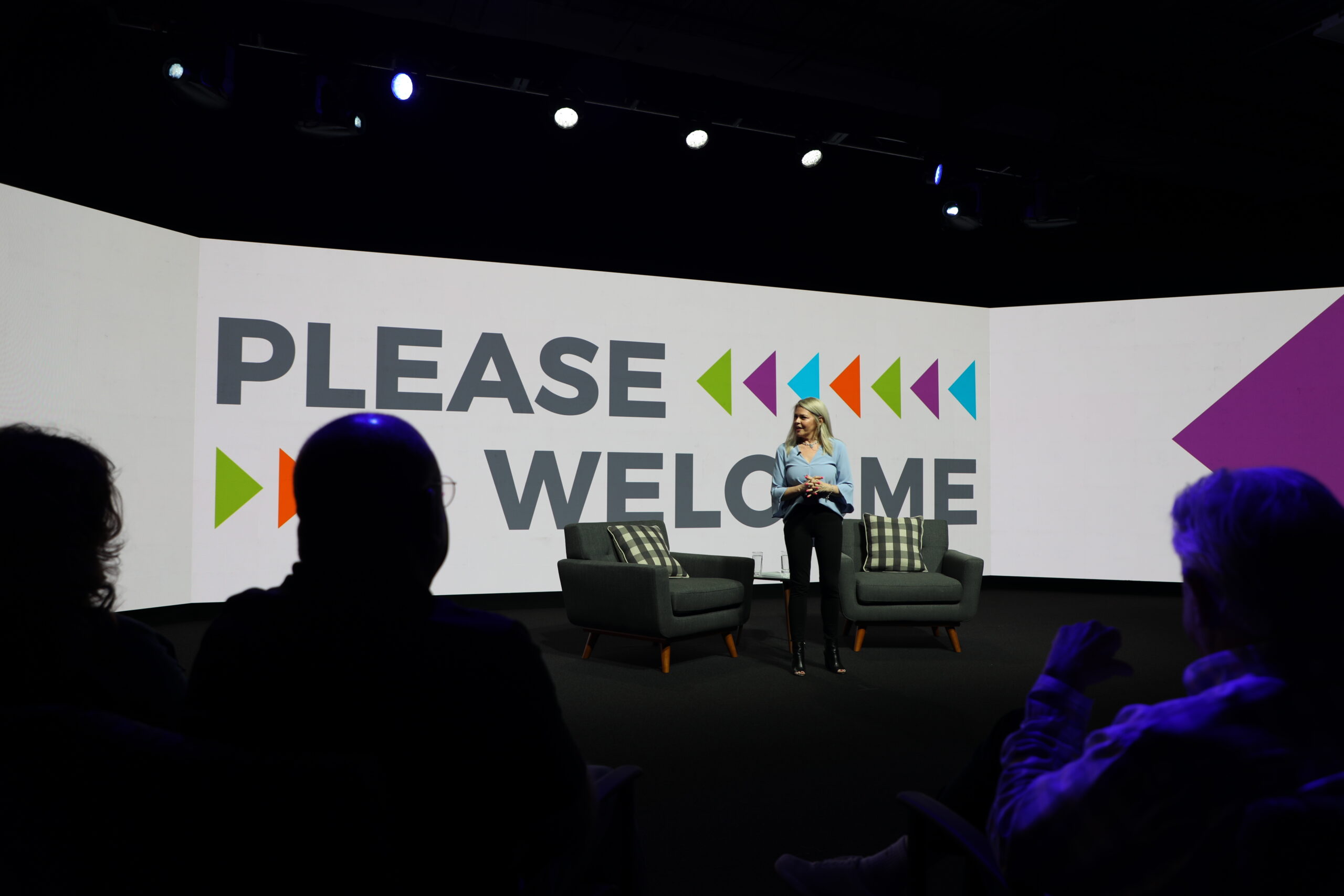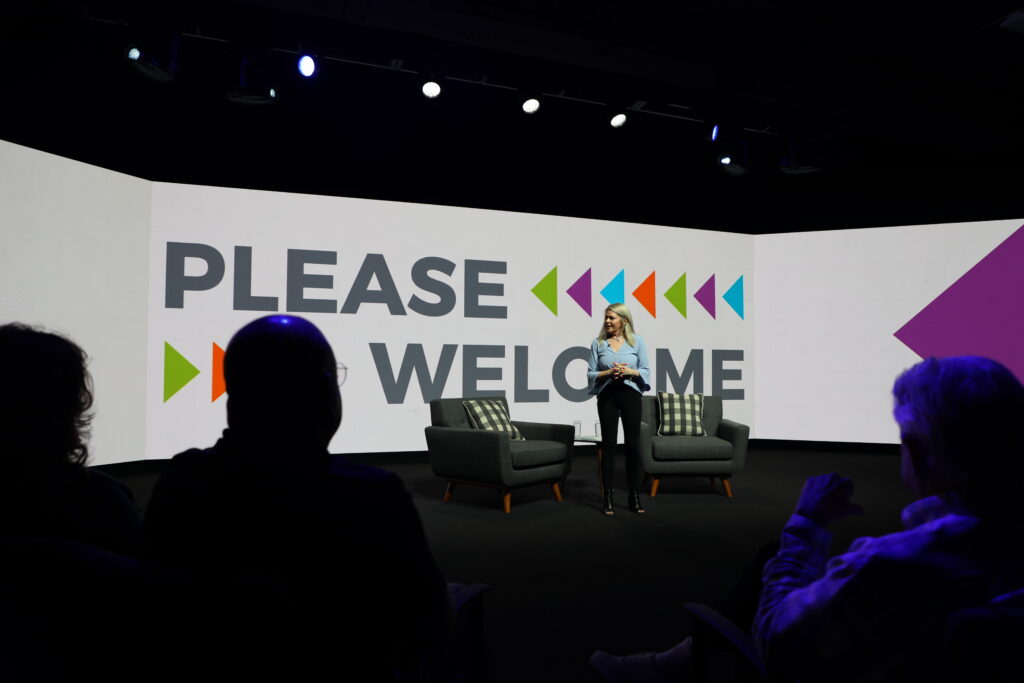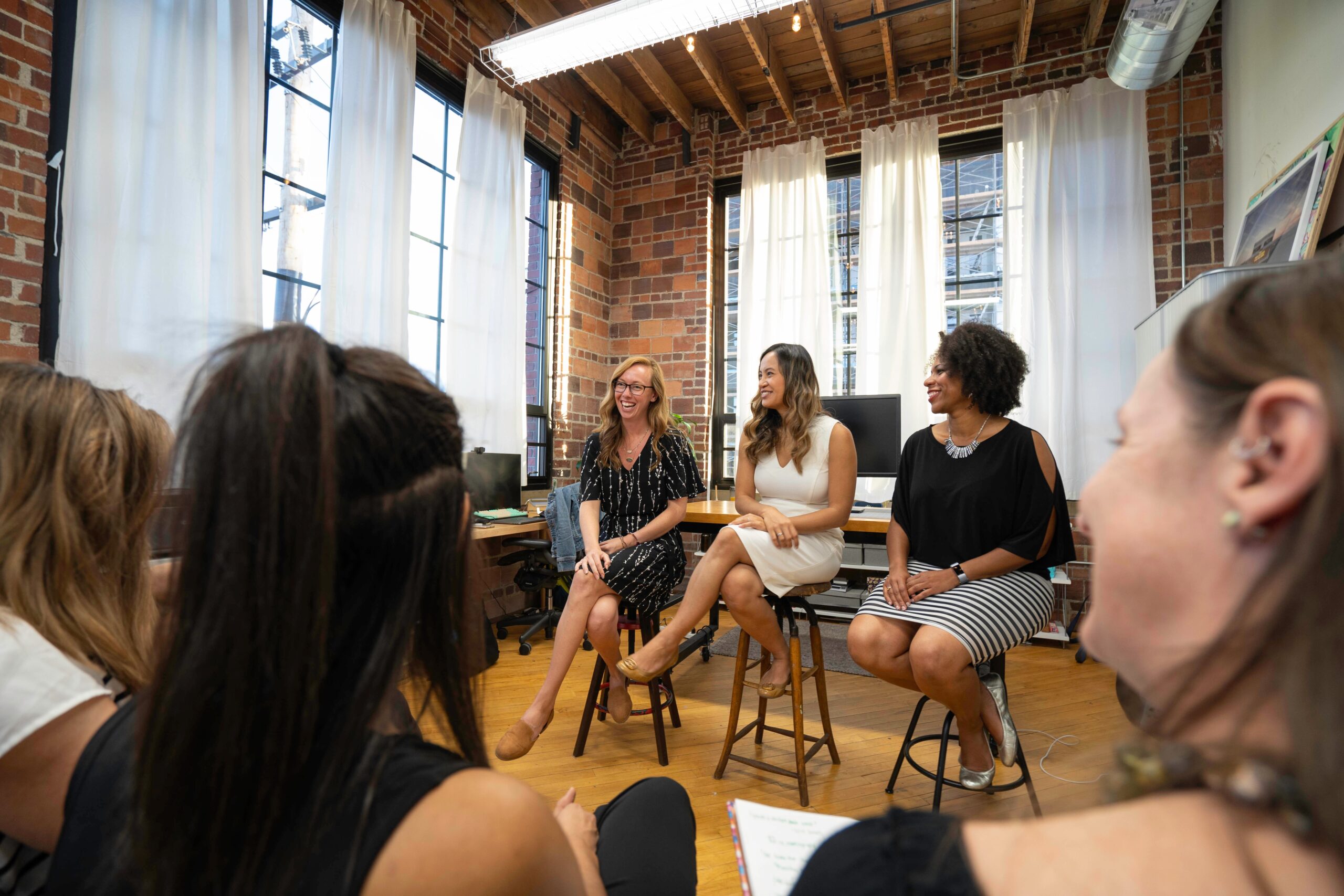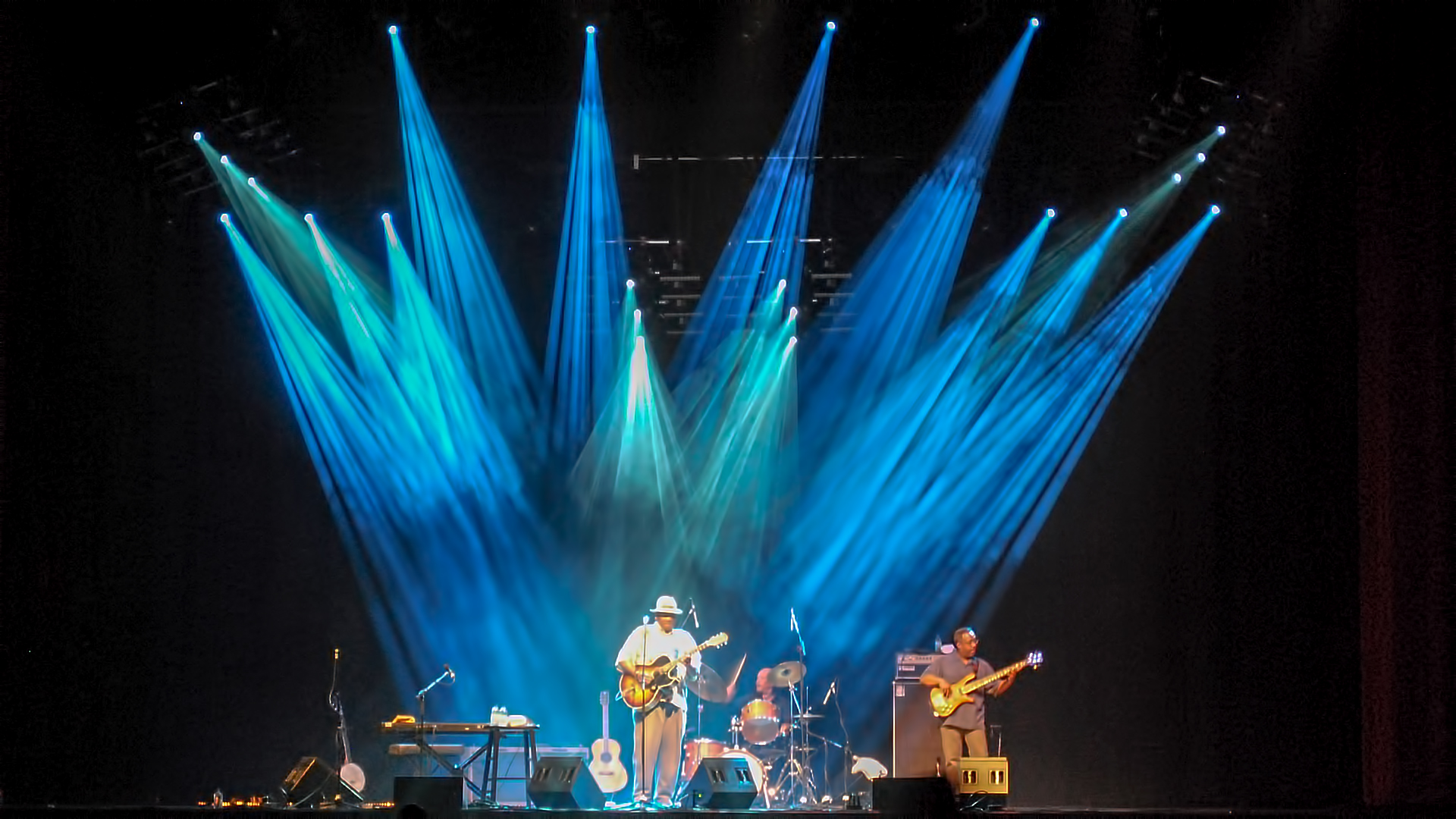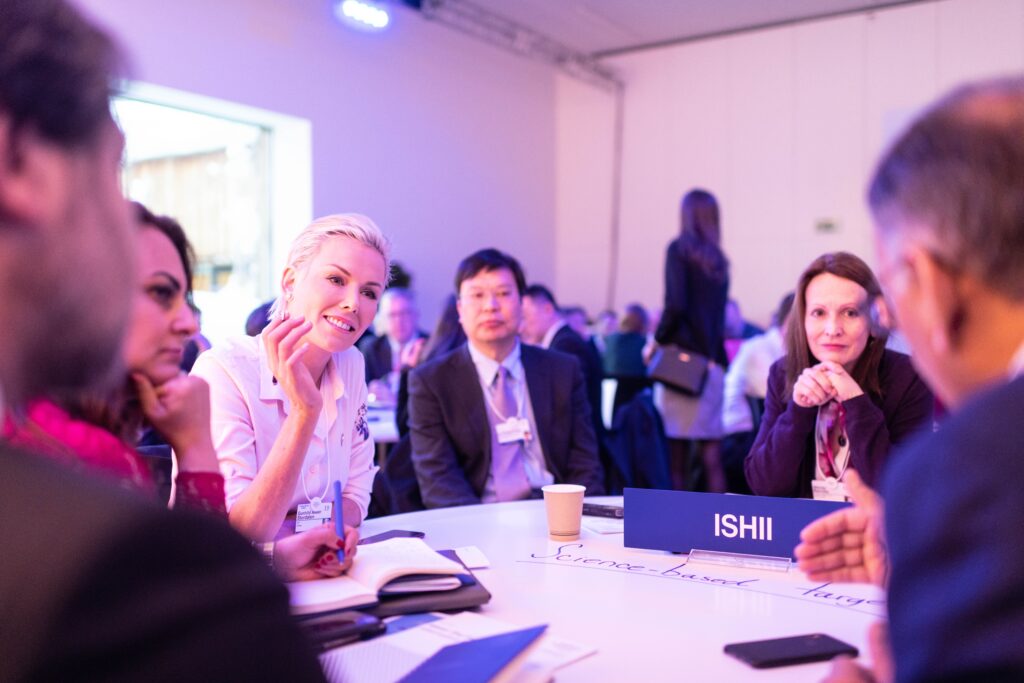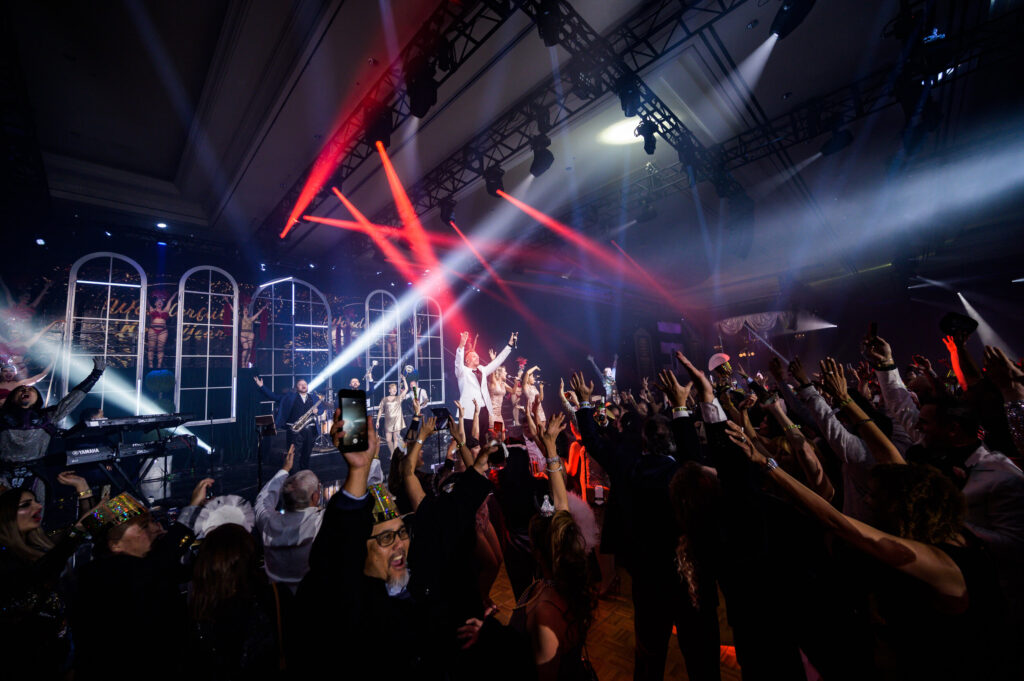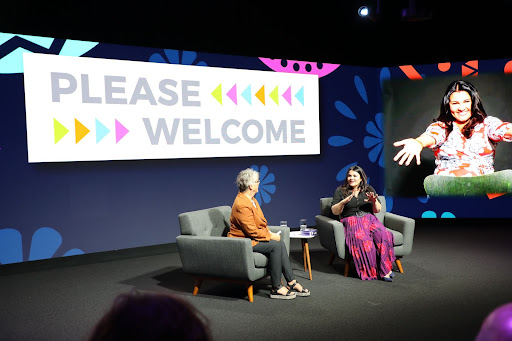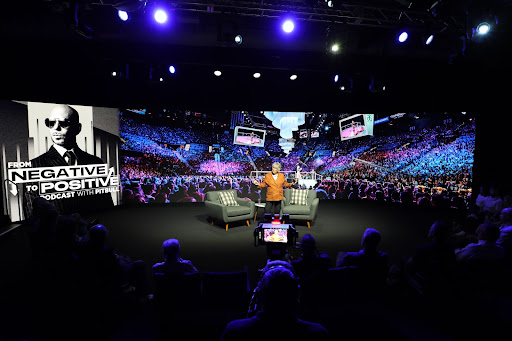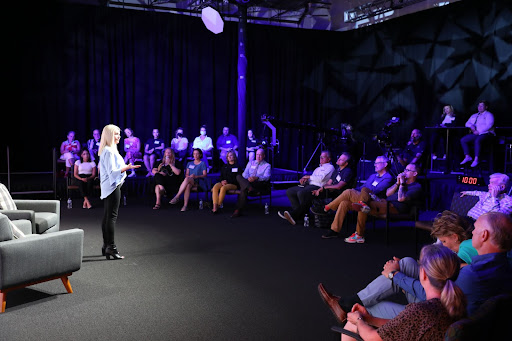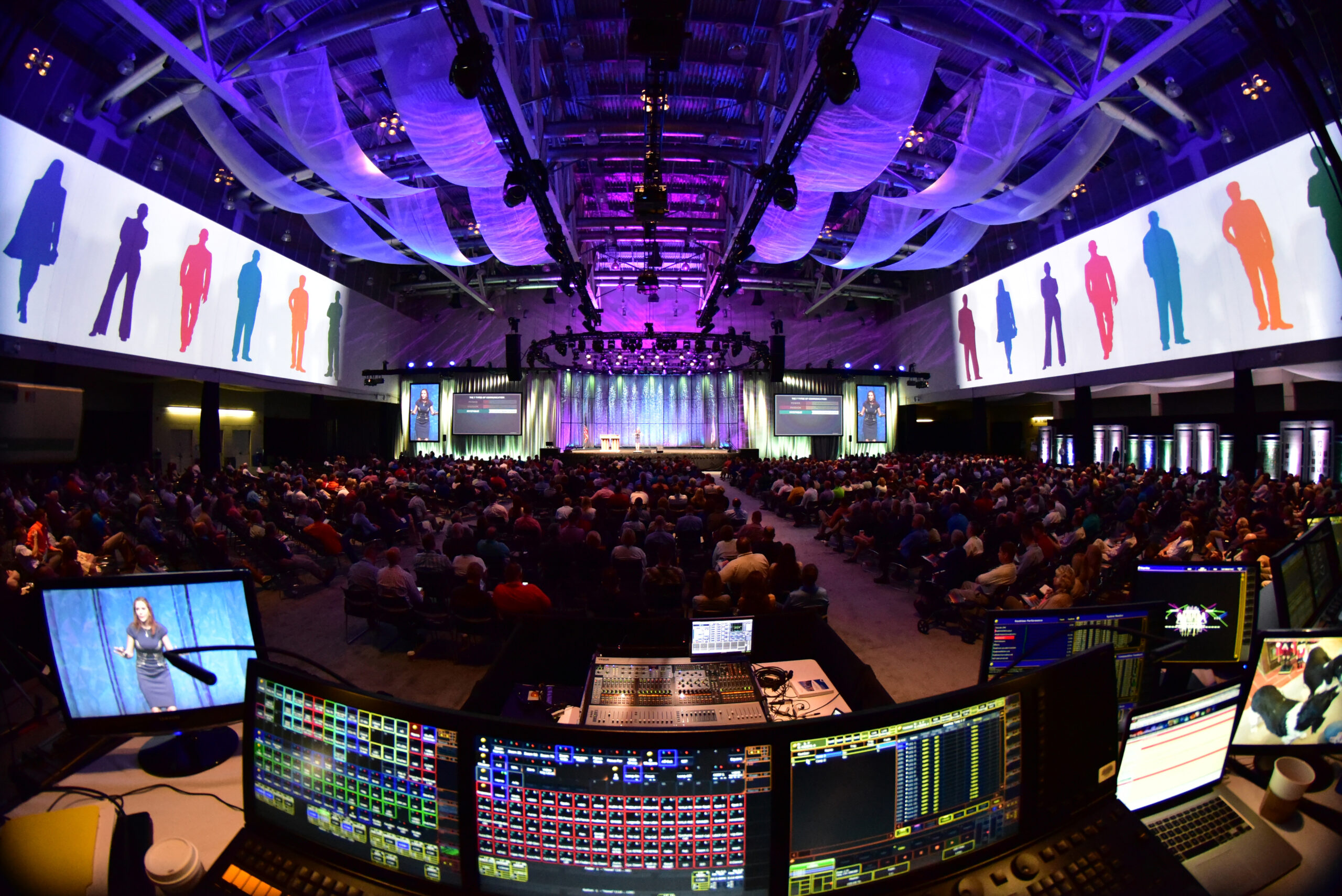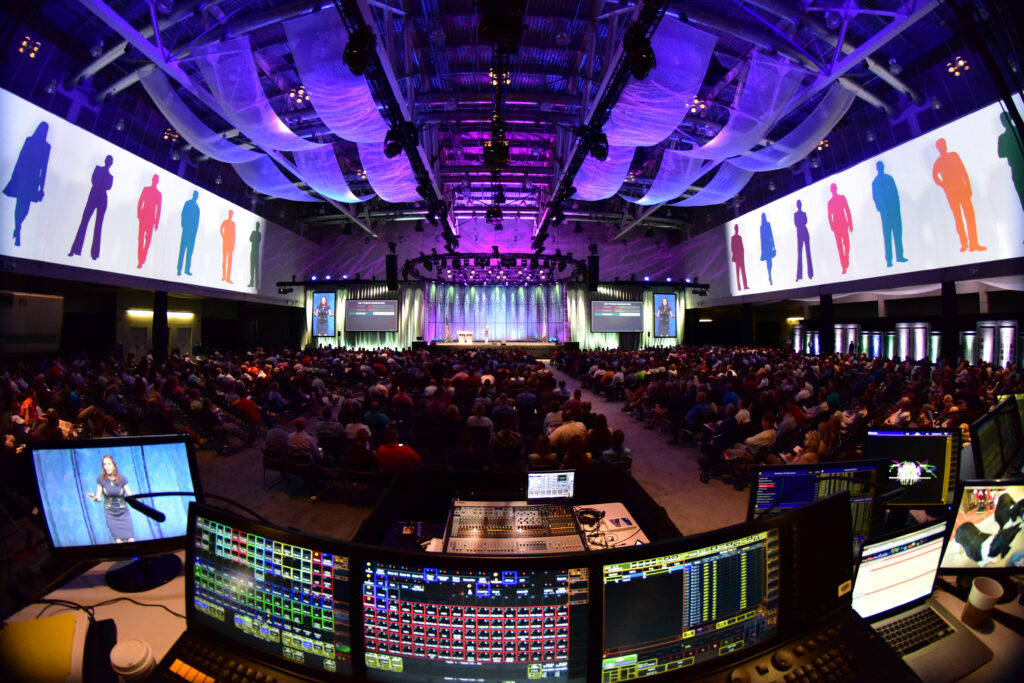Experiential marketing events are the perfect way to connect with potential customers, build brand loyalty, and increase engagement in the digital age. From sales kick-offs to Apple iPhone product launches, experiences make the sale.
Interactive experiences have the power to create memorable connections between a brand and a customer. With our clients in mind, we put together this comprehensive guide to provide all the necessary tips to make your next experiential marketing event stand out. For the rest of your event planning questions, give us a call.
Experiential vs. traditional marketing: experiences make memories
Traditional marketing reaches audiences through mediums like magazines and newspapers, while experiential marketing focuses on creating an emotional connection with customers through unique in-person experiences. Traditional marketing will always be an effective way to get a message to the public, but experiential marketing provides customers with an opportunity to engage with a product.
Although experiential marketing events are relatively new, brands have introduced their products to people in person as far back as the first World’s Fair in 1851. When William Wrigley, Jr. introduced Wrigley’s Juicy Fruit chewing gum in 1893, he knew people needed to experience it firsthand to appreciate and enjoy its benefits. Wrigley’s investment in the World’s Fair made Wrigley’s brand a huge success.
Fast forward 100-plus years, and Super Bowl commercials aren’t getting the hype that they did just ten years ago. Consumers today are suffering ad overexposure from traditional marketing methods. Regular TV ads are disruptive advertising at a time when consumers can stream TV shows or fast-forward through commercials. It takes a lot to surprise and delight audiences, which has turned experiential marketing into a breath of fresh air.
Experiential marketing builds lasting relationships
In-person events have the power to turn an audience of uncertain shoppers into dedicated customers. This power has made experiential marketing events an increasingly popular tool for brands to engage with their customers in a meaningful way. By creating interactive experiences tailored to a target audience, companies can boost brand awareness and build customer loyalty. Engaging the five senses can create memories that translate into powerful, lasting brand affinity. Through memorable events, activities, and experiences, brands can showcase their services and give their customers a chance to get to know the brand better.
Organic consumer connections form through events that create memories and encourage word-of-mouth advertising. It attracts more people to a brand. The recent rise in social media and influencer marketing has made events a dominant and undeniable force in advertising. An ad may draw consumers in, but an experience gives them something to remember. And influencers can’t post about their experiences online without having them first.
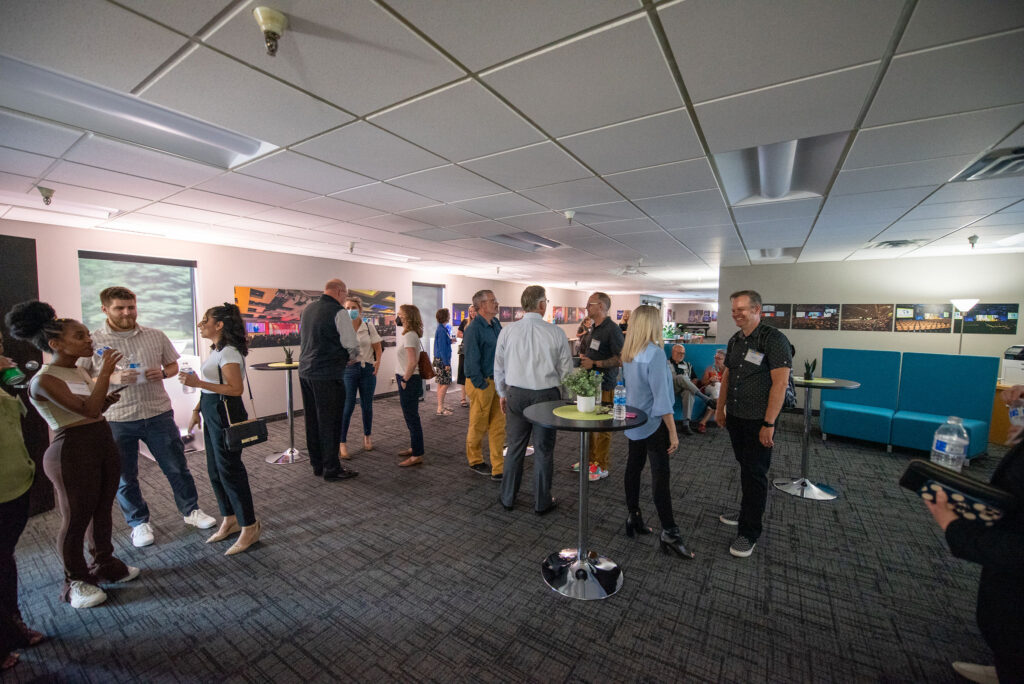
Launching an experiential marketing campaign? Start with strategy.
When planning an experiential marketing campaign, it is essential to have a well-defined strategy that outlines the goals, metrics, and objectives. You need to understand your audience, how you want to reach your audience, and any communicative challenges that may be in your way. With the audience in mind, you can develop an event plan informed by your marketing goals. Every event is unique, and successful events need a comprehensive approach. These are the basics of how the strategy should form.
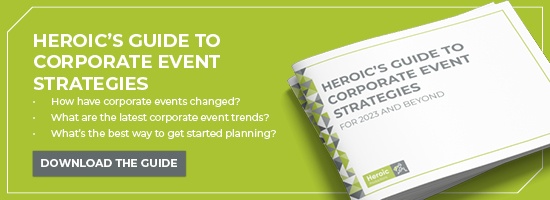
Know your audience
The first step in creating an effective experiential marketing campaign is to look at your customer base and determine what kind of experiential campaigns they would enjoy. What do your attendees need from this event? Let those needs inform the event’s agenda, activities, and overall themes. Gathering data on who your customers are and what they want will help you identify the target audience and give you valuable insight into the most successful experience. This research could provide information about new markets to explore and what events will be most effective.
Set clear objectives
Once you have identified your target audience, you must solidify goals to ensure your experiential marketing event is successful. Ask yourself what you want to accomplish with this event and consider the ultimate target of the campaign. Is it to gain new customers? Promote a new product? Enter a new market? Once you know what you are working towards, you can begin to plan the event. Understand what you want this experience to communicate about your company’s values and culture. Build strategy from there.
Prepare a team you can trust
Successful experiential marketing events don’t happen in a vacuum. They require careful preparation and planning, and relationships make all the difference. Solid partners will bring a comprehensive set of tools and contacts to overcome any challenges.
At a preparatory stage, you might consider partnering with an event production company that can create a memorable and engaging experience for your attendees. Look for an experienced event production company with strong referrals and a solid network of event resources. Consider what visuals, interactive activities, and exclusive experiences align with your event objectives. The most successful event teams are highly collaborative and strategic in their approach. Develop solutions with your audience in mind, and don’t forget the fun!
Engage the attendees
Engaging with your audience is key to ensuring the success of your event. Traditional marketing can help you accomplish this. Print or digital ads, social media, contests, giveaways, and other activities are ways you can encourage your audience to interact with your brand. Plan for engagement CTA’s before, during, and after your event. Think about event hashtags. Don’t make this an afterthought. Engagement should be baked into strategy from day one.
Make it immersive
Elevate your event by finding opportunities to directly involve your attendees. Consider what will make the experience most engaging. Immersive elements could include live chat, video rooms, networking, or live Q&A. Whatever you have in mind, collaborate with your event partners and make sure your vendors can facilitate these real-time interactions. Simple attention to an attendee’s needs can make all the difference.
Budget for creativity
A detailed budget will help to guide your location, vendors, and other event resources. Prioritize essentials here, but always leave room for creativity. The success of an experiential marketing event hinges on its unique engagement, and it pays to think outside of the box. Planning far ahead of your event can help your team take the time needed to perfect your budgeting approach.
Plan to track your success
After your event is over, it’ll be important to have a clear assessment of its success. Before your event, determine what metrics you’ll be tracking. Understanding what works and what doesn’t will help you strategize future campaigns. Event value links to an event’s strategic purpose.
Types of experiential marketing events
Experiential marketing events range from intimate press lunches to large public product launches. As you consider what type of event to produce, keep strategy top of mind. Think about what you want to accomplish.
Brand activation: make an impression
Brand activation events are a creative way to build brand awareness and loyalty. Events are an effective tool for generating interest and increasing sales, but more importantly – cultivating long-lasting relationships. To help your brand activation to stand out, you might consider partnering with entertainers and opinion leaders to create fun and interactive experiences that promote brand affinity. You might also use data visualization tools to highlight meaningful insights in an in-person setting.
Pop-ups: generate buzz
Pop-up events are temporary, unexpected events in unique spaces that capitalize on the element of surprise. They offer a low-cost and low-commitment way for companies to take creative risks and introduce their products to new audiences. Consider what unique pop-up experiences might fit with your brand, whether a kiosk at a trade show or a brewery sampling. Pop-up shops create a sense of urgency and allow companies to sell their products in an environment designed and controlled by them.

Product launch: show vs. tell
Product launches provide an experience for people who may not be sure of how they would use a product or service. Silicon Valley giants like Google and Apple have used product launches to show the public how they can benefit from new technology.
For example, Google recently created a unique product launch event by taking a cupcake truck to the streets of Austin, Texas, to help promote its new photo app. Consider finding creative ways for attendees to interact with your brand. Look for event features that can illustrate the benefits of using your product. The difference is in the details.
Sales meetings: motivate and activate
Sales events can be a major capstone in a company’s year. They offer an opportunity to educate, celebrate, and inspire your team, as well as set objectives for the next sales cycle. The best sales meetings offer team-building experiences and learning opportunities that energize your team and build up their skill set. Set big goals and celebrate your company’s all-stars. The result should be a motivated and activated team.
5 Elements of a successful experiential marketing event
There are many types of experiential marketing events, but they all have a few elements in common. As you plan your next event, keep the following in mind.
- Location: Don’t host your event just anywhere. Location can be an enticing incentive for an audience that needs to escape their norm. Let the “why” of your event inform the “where.”
- Venue: Look for unique venues that have experience with experiential marketing events. Consider what you’re marketing and why it would benefit from one environment or another. If you’re celebrating something, the environment should be a treat.
- Entertainment: Choosing entertainment can make or break an experiential marketing event. Consider timing, audience, and overall—emotion. Who will be in the room, and how will they feel? Look for entertainers who can be enthusiastic about your event and brand — and be prepared to set them up for success.
- Technology: Event logistics offer endless opportunities to surprise and delight attendees. From the lighting to the sound and your keynote speaker’s PowerPoint presentation — allow technology to elevate the message of your event. Consider tone. Consider themes. Execute with intention, and trust the experts in guiding your tech.
- Strategic product placement: Your attendees should remember why they’re gathering and remember it often. Look for opportunities to brand your attendees’ experience and give them a memory they can take home. Make your swag bags pop. Place QR codes throughout the venue. If you’re sharing merch, make sure it’s the kind they’ll actually want to wear. Details matter. Make the small stuff count.
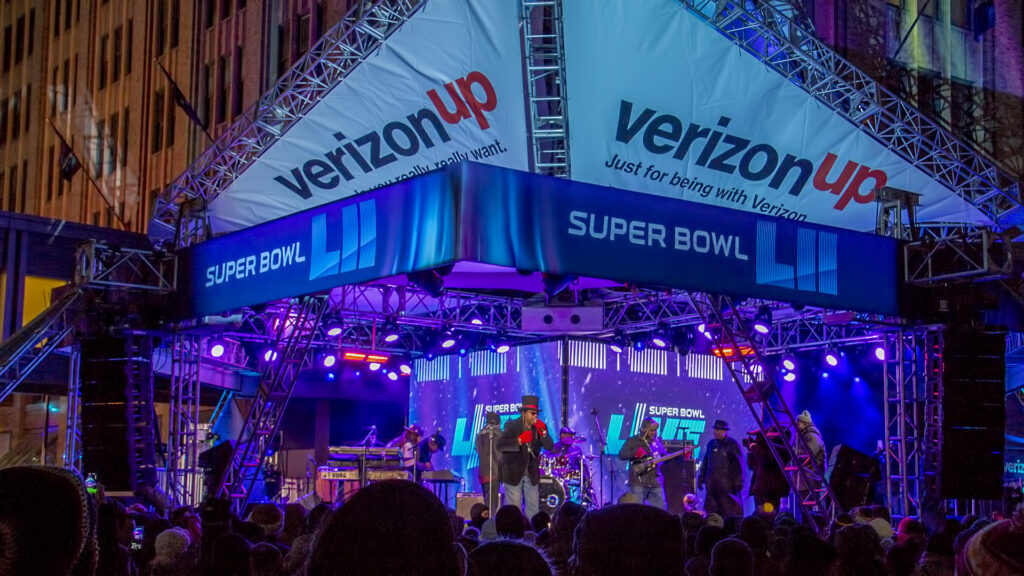
Heroic is your trusted partner for corporate events
You’ll accomplish the best results when you collaborate with partners who understand your audience’s needs. At Heroic, we’re a one-stop shop for strategizing and producing corporate events. From launching a new product to celebrating your sales team, know all the right event questions to ask and all the right people to call. We leverage years of event management experience to produce experiences that engage your audiences and create measurable impact.
Supportive and experienced collaborators make the difference in event planning. Let’s plan your next experiential marketing event together. Contact us today.


